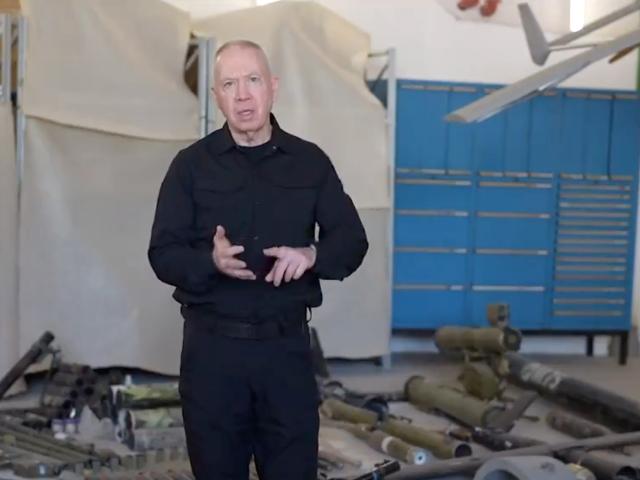In recent developments, Defense Minister Yoav Gallant disclosed a significant shift in the dynamics of the ongoing conflict within the Gaza Strip. Gallant revealed that a substantial number of Hamas militants, disillusioned and lacking the will to continue fighting, have surrendered to the Israel Defense Forces (IDF) in the past few days. This occurrence has been notably observed in Khan Yunis, a key stronghold for Hamas in southern Gaza, where concerted military efforts by the IDF are yielding tangible results. Specifically, Gallant mentioned the surrender of 200 terrorists at Nasser Hospital and additional surrenders at Amal Hospital, highlighting a clear demoralization among the ranks of Hamas fighters.
This trend of surrender, as Gallant pointed out, is a testament to the waning morale among Hamas militants, faced with the stark choice between capitulation and facing inevitable defeat. The minister's comments underscore the effectiveness of the IDF's strategy, which has not only cornered Hamas forces in limited areas of Gaza but also isolated them from potential external support, including that from Iran or international backers.
"There is no one here to come to their aid, no Iranians, no international aid,” Gallant said, vowing that the army would dismantle the remaining six Hamas battalions — two in central Gaza and four in Rafah.""https://t.co/xit2LfhTzd
— Shoshana🦁🌞 (@Shoshana51728) February 19, 2024
The strategic focus of the IDF is not only on neutralizing Hamas's current capabilities but also on a comprehensive dismantling of its military infrastructure. Gallant emphasized the urgency of this mission, particularly in light of the ongoing hostage crisis, with 134 individuals still held in Gaza, and the tragic loss of at least 32 hostages to Hamas's aggression. The broader context of this conflict includes a grim tally of approximately 1,200 civilians killed by Hamas since the outset of hostilities on October 7, with thousands more wounded.
Hamas searching for Sinwar's replacement
— i24NEWS English (@i24NEWS_EN) February 18, 2024
"There is a bid for who will manage Gaza. There is no party in control. The Khan Yunis Brigade is defeated and no longer functions as a military entity," Gallant says pic.twitter.com/8X88Kqy0hX
Further complicating the security scenario is the involvement of Hezbollah, another Iran-backed group, which has escalated its attacks against Israel from Lebanon. The IDF has responded to these provocations with measured increases in its offensive operations, aiming to secure the northern border and protect Israeli communities from rocket attacks. The recent statements from IDF officials, including Maj. Gen. Uri Gordin of the Northern Command, signal a readiness to intensify actions against Hezbollah if necessary, while also emphasizing the importance of local defense initiatives in safeguarding Israeli towns.
Martyrs Wanted.
— Jerusalem of Iron 🇮🇱 עם ישראל חי (@jerusalemofiron) February 18, 2024
Gallant: "Hamas looking for Yahya Sinwar's successor. "Hamas has no trust in its commanders. [Currently,] there is no one in control, and there is no one leading operations."
No pity.https://t.co/jJyCm30fwo
Amidst the violence, international concern for civilian safety has risen. The International Committee of the Red Cross (ICRC) recently expressed its alarm over the impact of the conflict on civilians in northern Israel, urging all parties to adhere to international humanitarian law and prioritize the protection of non-combatants. This call to action reflects the broader challenges of conducting military operations in densely populated areas, where the risk of civilian casualties and displacement is high.
As Israel continues to navigate the complexities of a multi-front conflict, the focus remains on de-escalating tensions where possible, securing the safe return of hostages, and ensuring the defense of its territory against external threats. The unfolding situation underscores the volatile nature of regional dynamics in the Middle East, where military, diplomatic, and humanitarian considerations intersect in the quest for security and peace.


